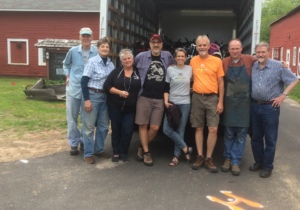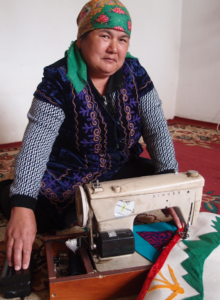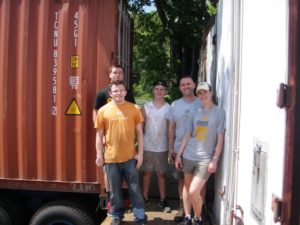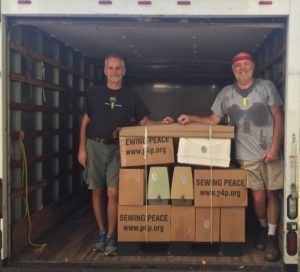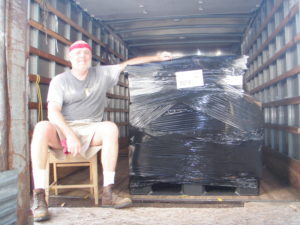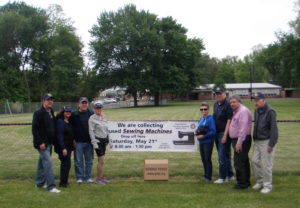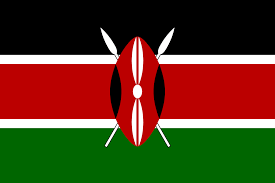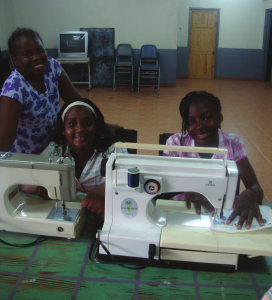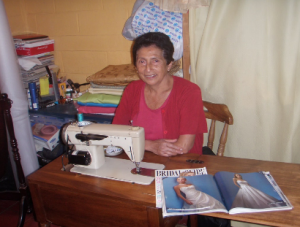[This description was written for the TWYDS. We will update it as we get more information from the She Can Foundation.]
INTRODUCTION
Tanzania Women and Youth Development Society (TWYDS) is a national non-governmental organization that facilitates the socio-economic, health, and situational development of marginalized women and young girls. TWYDS has been registered under Companies Act, 2002 registration number 128581, in the United Republic of Tanzania. The headquarters is located in Mbeya City in Southern Highland of Tanzania. TWYDS is working with women’s and girls’ issues countrywide. TWYDS’s main areas of work are social, economic and political empowerment, particularly in policy advocacy, community mobilization, awareness and sensitization on education and entrepreneurship training programs.
TWYDS is addressing critical issues that prevent completion of primary education for young Tanzanian girls and ensnare marginalized women in a poverty cycle. For Tanzanian girls, these issues include combating child marriages and protecting the girls, including working girls, to prevent child and adolescent pregnancies through general and reproductive health education. As a long-term response to reduce extreme poverty, TWYDS works further to empower Tanzania’s girls from harmful traditional and cultural practices which expose them to abuse and denial of continuous education.
For teen mothers and marginalized women, TWYDS offers support and entrepreneurship training as well as general life skills and social education which gives women means to survive and eventually improve their living standards.
Improving women’s well-being contributes to a cycle of better health and entrepreneurship education outcomes, more stable societies, and more sustainable development. TWYDS is committed to empowering women and young girls through education since it is essential for them to fulfill their human capability and for their families and societies to realize their full potential.
VISION
TWYDS envisions a society where women and girls are socially and politically emancipated and have attained economic empowerment leading to sustainable and self-sufficient lives.
MISSION
TWYDS aims to improve women’s socio-political and economic status and the positions of vulnerable and disadvantaged women and girls in society through creating awareness, training, sensitization and policy changes that can be made to combat ignorance, poverty and diseases.
MAIN GOAL
The organization’s main goal is the economic, social and political empowerment of marginalized women and girls in Tanzania.
CORE VALUES
TWYDS has a number of core values that guide the way the members, board, staff and partners relate and operate. The values of the TWYDS are:
- Integrity
- Accountability
- Unity
- Equality
- Spirit of voluntarism and volunteerism
- Teamwork
- Conscientiousness
SPECIFIC OBJECTIVES
- To promote girls’ rights with respect to girls’ care and provide them with better education and provide forums for discussing the girls’ dreams and ambitions in their life and how to make them work in the future.
- To impart knowledge on reproductive health education among primary and secondary school girls and its consequences involved in early sex and unsafe sex.
- To facilitate the change of attitude among the community members who are stereotypes in girls’ education.
- Designing concrete, evidence-based plans for program designers, donors and policymakers that empower women to control their lives and help shape the future of their communities; measuring changes in the lives of women and girls to know how best to achieve gender equality.
- Recommending policy priorities that give women opportunities to transform their lives.
- Strive to increase women’s ownership, use and control of assets and property, to empower women as economic agents and better their ability to access markets on competitive and equitable terms.
CURRENT RECORDS AND SUCCESS
TWYDS has experience working on the ground in Tanzania. So far it has gained successes in:
- Implement ‘SASA NAWEZA”, which literally means “NOW I CAN”. This project aims at empowering primary school girls to improve academic performance and impart life skills on reproductive health education.
- Implement ‘WEKA AKIBA KUONGEZA MALI’. This program focuses on empowering marginalized women in saving and getting involved in entrepreneurship activities to overcome the burden of extreme poverty in Mbeya and Dar es Salaam Cities.
- Establish the Orphanage Centre in the Mbeya region and provide education and health care services to orphans and the most vulnerable children.
- Implement social accountability initiatives such as Public Expenditure Tracking System and PIMA Card to track public expenditures in delivery of health and education services.
PROGRAM IMPLEMENTATION STRATEGIES
TWYDS undertakes its program interventions through:
- Conducting community outreach campaigns to advocate for girls’ education
- Providing training on reproductive health education for school girls
- Training specifically on women’s entrepreneurship education
- Lobbying and advocacy on policy changes to promote women’s and girls’ rights.
- Forming women’s action and organized groups
CORE ACTIVITIES/PROGRAMS
Our programs are aimed at proving long-term solutions to end poverty, injustice and illiteracy. TWYDS encourages self-reliance through sustainable development in the following areas:
Women’s Economic Empowerment
TWYDS supports programs focused on providing women access to education and training, health facilities, economic and social development, and other resources/opportunities/assets to help them achieve equity, sustainability and security. Ensuring that women have and can take advantage of full and fair opportunities to earn a living fundamental to social and economic development. The TWYDS’s program seeks to complement our existing portfolio by supporting a focused agenda on women’s economic empowerment through:
Open Market Fair Event
The Open Market Fair Event is conducted each year by TWYDS. It’s a two-day event held for the economic empowerment of women where the women entrepreneurs from various groups attend the event and sell their products, and have the opportunity to network with other big entrepreneurs as well to market their goods to potential customers.
Entrepreneurship Training
We support women’s entrepreneurship through training in production skills and techniques. In the entrepreneurship training, the women’s groups are taught how to make certain products, such as local soap, local jewelries and African patterned ‘Batik’ materials.
Savings and Basic Business Education
The women Entrepreneur groups formulated by TWYDS are taught how to start and develop a business and given the knowledge of budgeting, business management and education savings, helping them to certify businesses that adhere to quality standards in the workplace.
Girls’ Education Program
TWYDS is focusing on the development of education for girls in both urban and rural districts. The struggle against ignorance of girls who have no resources for education is a challenge. Our support is not limited to primary and secondary schools only but also on young women who never got the opportunity to complete their education. We inspire them to reach their full potential by addressing their basic needs through funding, partnerships and resources for education and vocational training. The core components of Girls’ Education Program are:
Girls’ Future Initiatives
TWYDS works with girls on “in-school” and “out-of-school” tracks. For girls who are engaged in the formal system, the focus will be on supporting them in as many ways as possible to be successful in school, attain a high school performance, and make the successful transition to post-secondary education. For girls who are out of school, the focus will be on connecting them back to school or connecting them with adult education. These programs provide high school equivalency and basic literacy instruction to out-of-school girls.
SASA NAWEZA
This program literally means ‘NOW I CAN’. The Girls’ Education Program teaches the girls to be vigilant in learning as soon as they are admitted into schools. This involves major challenges to the girls in their respective schools, whereby primary and secondary school girls are empowered with the knowledge, skills and options they need to reach their potential. Among other issues, we aim to reduce the rate of truancy, improve academic performance and teach sexual health awareness so the girls make better decisions about their bodies and lives.
Promoting Maasai Girls’ Education
TWYDS sensitizes the community about the consequences of harmful cultural practices affecting Maasai girls’ education. Girls escaping female genital mutilation have greater barriers to receiving essential services, particularly education. TWYDS strives to collaborate with government authorities, to help ensure girls are protected and to create partnerships with community leaders, educators and individual supporters to increase support available to Maasai girls.
TWYDS increases public dialogue and awareness on the practice and its harmful consequences to help shift tolerance and attitudes against it. TWYDS develops holistic programming of training and economic opportunities for women who perform the practice, to create alternative livelihood options and incentives, which can help in the process of abandoning the practice.
PARTNERS
In implementing its activities and programs, the TWYDS networks and collaborates with various organizations, including:
- UVIKIUTA
- Tanzania Women and Youth Development Society (TWYDS)
- Tanzania Coalition on Debt and Development (TCDD)
- The Leadership Forum (TLF)
- Mtwara Non Governmental Organization Network (MTWANGONET)
- Lindi Non Governmental Organization Network (LINGONET)
CONTACT US
Tanzania Women and Youth Development Society (TWYDS)
Block T Area, Kadege Street, Plot no. 169
P. O. Box 6464
Mbeya, Tanzania
Hotline: +255 713 403 231 / +255 788 319 131

